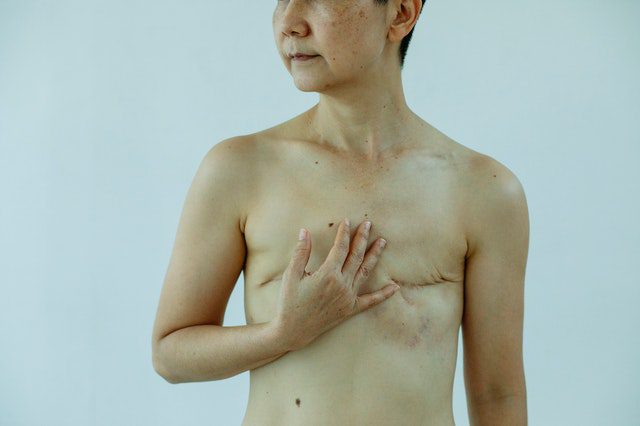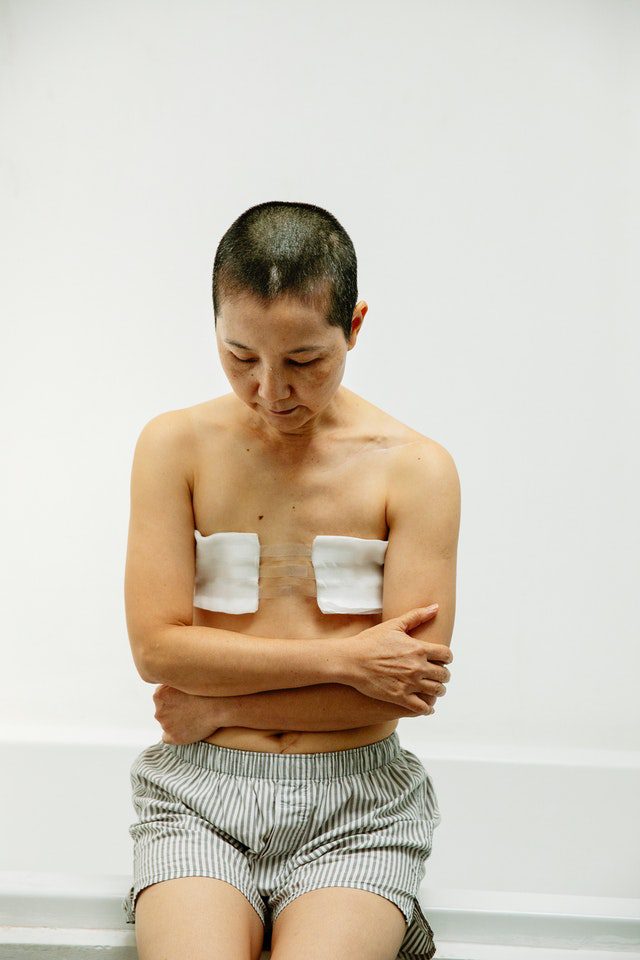
How To Prepare For Top Surgery
Top surgery, also referred to as FTM top surgery, is a kind of gender-affirming procedure. It involves a complete chest reconstruction, wherein all breast tissue is removed. This allows the upper body to appear more neutral or have a more masculine appearance.
Surgeons can perform gender-affirming surgeries in different ways, and different surgeons often have different methods. For example, some surgeons perform surgeries that include nipple grafts, while others don't. In addition, some surgeons use one incision, and others perform a double incision top surgery. Patients with a larger chest size will also require a different procedure than patients with smaller chest sizes.
However, regardless of your surgeon's method, you must prepare for it properly. Doing so will ensure an easier top surgery procedure and help with the healing process during your top surgery recovery period.

Physical Health
A patient needn't achieve any specific weight or BMI before getting top surgery done. However, it is vital with any major operation to make sure that you are as healthy as possible before surgery.
Healthy Diet
Maintaining a healthy, balanced diet is very important for overall health. Try to eat a lot of fruit, vegetables, and whole and raw food. Avoid over-eating sugar, refined carbohydrates, and processed foods. It's also essential to drink enough water for a healthy diet and lifestyle.
However, keep in mind that you may be required to cease any intake of food or drink the night before you have your surgery. Be sure to follow any specific instructions given to you by your surgeon.
Exercise
Another way to make sure your body is in good health is to exercise regularly. For example, many transgender men exercise their chest, shoulder, and general upper body using weight training in order to get a more desirable shape.
An excellent place to start is to join a local gym and invest in a personal trainer to help motivate you. If you have a smaller budget, you could get a workout buddy instead to help keep you motivated if you lack confidence.
Try to find a gym, trainer, or friend who understands your specific needs in terms of fitness, muscle building, and body shape.
There are also many personal training resources available online for trans people. If for any reason you can't visit a gym or need to exercise at home, or you are someone with a more introverted personality type.
Things To Quit
Recreational Drugs
You will be expected to discontinue the use of any recreational drugs for several weeks prior to surgery. Your surgeon, hospital, or chosen surgical center will undoubtedly provide you with an extensive list of things to avoid before your surgery. However, the most common recreational drugs to avoid are Marijuana, Nicotine (Cigarettes, Vaping, Nicotine Patches), and Alcohol.
Other more potent and more dangerous drugs (such as heroin, meth, or psychedelics) need to be discontinued for at least three weeks before and after top surgery, as well.
Smoking
Patients are usually required to stop smoking for, at the very least, three weeks prior and three weeks after top surgery- including nicotine intake through patches or gum.
Smoking distorts your immune system and prevents your body from taking in the essential nutrients needed to heal, which delays your healing process.
In this way, quitting smoking is vital for a successful operation.
Alcohol
In the week leading up to your surgery and week after, it is strongly advised that you do not drink alcohol. Peer-reviewed studies have found that regular or excessive alcohol intake increases your risk for complications such as cardiovascular disease. It is also responsible for the difficulty in skin, bone, and wound healing in the body.
Using surgical alcohol to clean your wounds after surgery can also lead to pain and irritation and slow down your recovery. Therefore, it is best to steer clear of alcohol altogether.
Certain Medications, Vitamins, and Supplements
If you are unsure which medications you should stop taking, you can request a list from your surgeon or your surgery center. Many surgeons will provide you with such a list even without request.
A general rule-of-thumb is to avoid things like blood thinners, anti-inflammatory medication, and any supplements that have not gotten the green light from your surgeon.

Top Surgery Procedure
What To Expect
There are different ways to perform this specific procedure.
Most typically performed is a double incision top surgery. It is primarily used when a patient has a larger chest. Two long incisions are made horizontally across the chest, from which the breast tissue is removed. Sometimes the surgeon will perform additional liposuction to ensure a flatter/more natural result. Liposuction also helps prevent "dog ears" (excess skin flaps that remain long after the scars have healed).
Some surgeons will perform nipple grafts. The nipples are removed, re-sized, and placed in a more natural position on the chest. However, this can cause nerve damage and loss of sensation, so some surgeons opt to reposition the areola without grafting- like in the case of a keyhole top surgery.
Periareolar top surgery can be performed on a small-chest patient. First, a circular incision is made around the nipple, and the tissue is removed through it. The excess skin is then removed, and the remaining skin is pulled taut around the areola.
Surgery Recovery
Discomfort
A certain amount of discomfort, swelling, and bruising are normal to experience after top surgery. Your surgeon will likely prescribe some pain medications to help. For further comfort and support, your chest will be wrapped in gauze, and you will need to wear a compression binder or vest for up to six weeks after surgery.
The binder helps to reduce swelling, prevents fluid retention, and helps the skin attach back to the chest wall.
You will also need to wear drains for some time after your operation. These temporary medical drains help reduce excess blood and fluid from the surgical area. They will need to be emptied each day and removed in one of your postoperative visits with your surgeon.
Wound Care
Proper wound care is equally important to prevent infection and aid in your recovery. You will need to change your dressings, empty your drains, and clean your wounds according to the instructions given to you by your surgeon. You will not be allowed to shower until after your medical drains have been removed, so take gentle sponge baths that are warm but not hot instead.
You may use ice packs to help with swelling and pain, but keep in mind never to apply them directly to the skin. You could also apply silicone gel to your wounds, but this will need to be discussed with your surgeon first.
It is also important not to lift your arms above your head until fully healed. Heavy exercises are not allowed, but walking for a little bit each day is encouraged to promote blood flow and prevent blood clots.
Complications
You may experience adverse reactions to the general anesthesia, excessive bleeding, "dog ears" that will require revision surgery, blood clots, or an infection. Keep an eye out for things like sudden chest pain, dizziness, or swollen legs, and contact your physician whenever you notice any rapid change or cause for concern.
Insurance Coverage
The top surgery cost can be steep. Not every medical insurance company will cover top surgeries- as it is often seen as purely cosmetic. Before proceeding with the operation, ensure that your health insurance will cover the cost of your top surgery. Some health insurance companies offer only partial cover, so it is best to check beforehand.
After Top Surgery
Support
Physical
You will need a dedicated support person after your top surgery (or FTM top surgery).
Choose a friend or family member, and ask them to pick you up from the hospital after your surgery. Anyone who has been under anesthesia is not allowed to drive. This person will also very likely need to stay with you for the first week to assist you and keep you company, so choose someone who will be willing and able to help you.
Suppose you do not have someone in your current support group who can or would help you during your first week of surgery recovery. In that case, you could enlist the help of someone in a transgender support group. Local transgender support groups are also an excellent way for you to connect with others in the transgender community.
Having someone to support you will also help in case of post-surgery depression.
Mental
Unfortunately, postoperative depression following a top surgery is relatively common and a possibility for anyone going through this procedure.
Healing from such a significant surgery expends a lot of energy, so you may find that you feel tired and withdrawn while you recover. Depression can also develop as a reaction to anesthesia or the trauma and stress one undergoes in such a significant operation. It can even be caused by chronic pain or a response to your medication.
Discuss postoperative depression following a top surgery with your surgeon before undergoing the procedure. You may also decide to enlist the help of a trans-friendly therapist, or other mental health services, to help with depression during your recovery.
Top Surgery FAQs
What should I wear on the day of my double incision-top surgery?
It's best to opt for comfortable clothes that will be easy to take off and put back on. Things like sweatpants and a zip-up hoodie are a good idea because you won't be able to move your arms much after your operation.
In most cases, patients must stay overnight, so bring a change of underwear. If you wear contact lenses, you may want to exchange them for glasses on the day of your surgery, as these will also be easier to take off.
Will I need to take a pregnancy test?
Before undergoing general anesthesia, most hospitals require a negative urine pregnancy test.
It is the case even for trans men who have been on hormone treatment for a long time, provided they still have a functioning uterus and ovaries. However, it is merely a precaution, as testosterone doesn't guarantee safety from pregnancy.
However, if you have undergone a hysterectomy, you will not need to take a urine pregnancy test.
What should I bring on the day of my top surgery?
As with any major surgery, you could be waiting for a long time prior to surgery. It is, therefore, a good idea to bring along things to keep yourself busy. Distractions may also help keep you calm while you wait.
Bring a bag to store your clothes and belongings during and after surgery, and arrange for someone to fetch you once you can go home the next day, as you will not be able to or allowed to drive.



